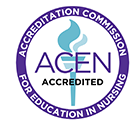Work with newborns, infants, toddlers, and adolescents. Provide specialized levels of care.
Since the stages of child development are significantly different from those of adults, pediatrics is a specialized field that requires advanced knowledge of child growth and how medical treatments may affect it. Pediatric nurse practitioners (PNPs) specialize in delivering health care to individuals younger than 21 years old. It’s an incredibly rewarding career, often requiring a bit of playfulness and a lot of patience. PNPs typically deliver service under physician management. However, some operate their own private practices. They diagnose illnesses, may prescribe medication in many states, and perform annual checkups, in addition to requisitioning patient testing and consulting with clients and their family members.
PNPs are in demand
The American Association of Nurse Practitioners (AANP) reports that as of May 2021, there were 325,000 licensed nurse practitioners in the U.S., however only an estimated 3.2% of NPs are educated and certified as PNPs. With a rising demand for more nurse practitioners and few certified as PNPs, there are insufficient numbers of qualified professionals to address the complex health care needs of the nation’s children.*
According to the U.S. Census Bureau, the number of children living in the U.S. is projected to increase from 74 million to 76.3 million between 2016 and 2030. This increase is expected to further intensify the need for pediatric nurse practitioners.
*NAPNAP
PNP responsibilities include:
- Assessing growth patterns
- Evaluating developmental milestones and educating parents about normal growth and development
- Eliciting comprehensive health histories
- Ordering and interpreting common laboratory and other diagnostic tests
- Diagnosing and treating common acute illnesses
- Prescribing medication
- Ordering immunizations
- Performing physical examinations, including school physicals, preparticipation sports physicals, and general well-child exams
- Providing anticipatory guidance
Common practice settings include:
- Pediatric offices
- Private caregiving practice groups
- Community hospitals
- Universities
- School-based health centers
- Community youth services
- Surgical theatres
- Pediatric oncology units
- Medically underserved and rural practice settings
Did You Know?*
- The top clinical focus areas for PNPs are pediatrics and pediatrics in subspecialty and primary care.
- The top practice settings for PNPs are hospital outpatient clinics, private group practices and hospital inpatient units.
- The top diagnoses PNPs reported treating were abdominal pain, migraines and otitis media.
*AANP

Master’s Programs Guide ranked Regis #16 in 50 Best Online Master of Science in Nursing Programs.

RegisteredNursing.org ranked Regis #2 in Best Pediatric Nurse Practitioner Programs.

Accredited by the Accreditation Commission for Education in Nursing (ACEN)

Regis College is accredited by the New England Commission of Higher Education

Designated as a Center of Excellence in Nursing Education by the National League for Nursing 2008-2020

Ranked among the Top 25 Fastest-Growing Colleges by The Business Journals

